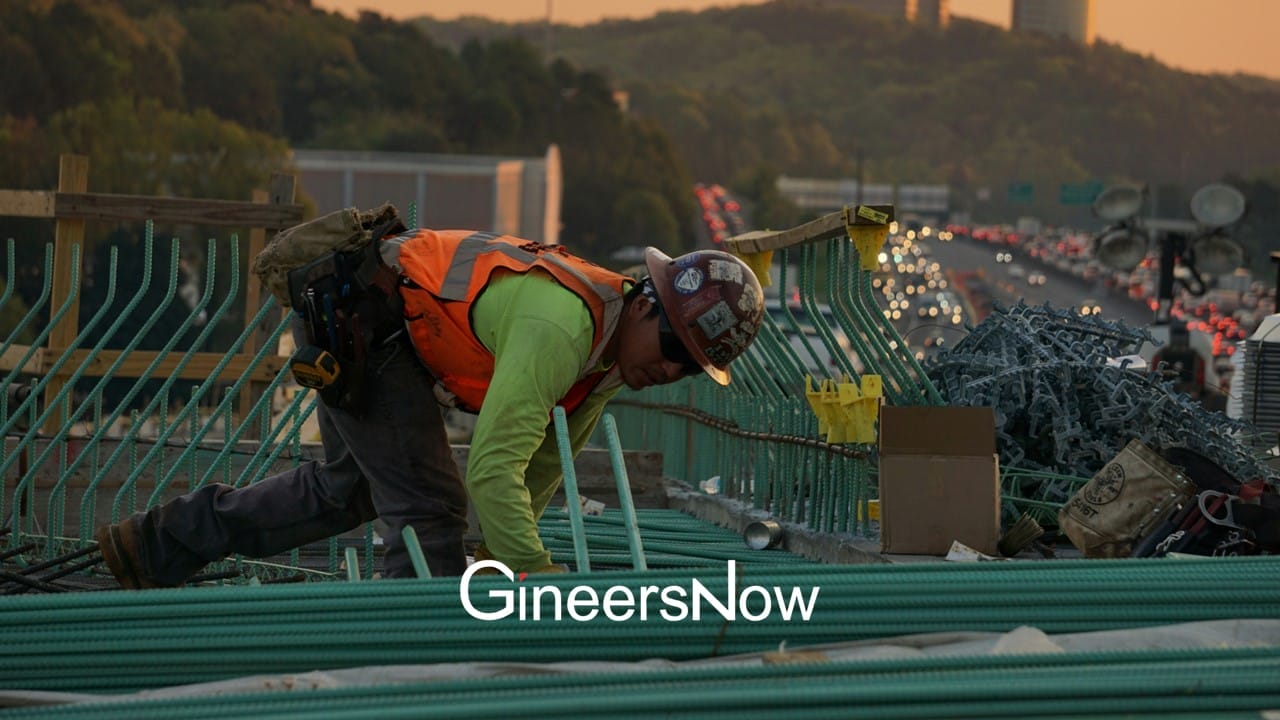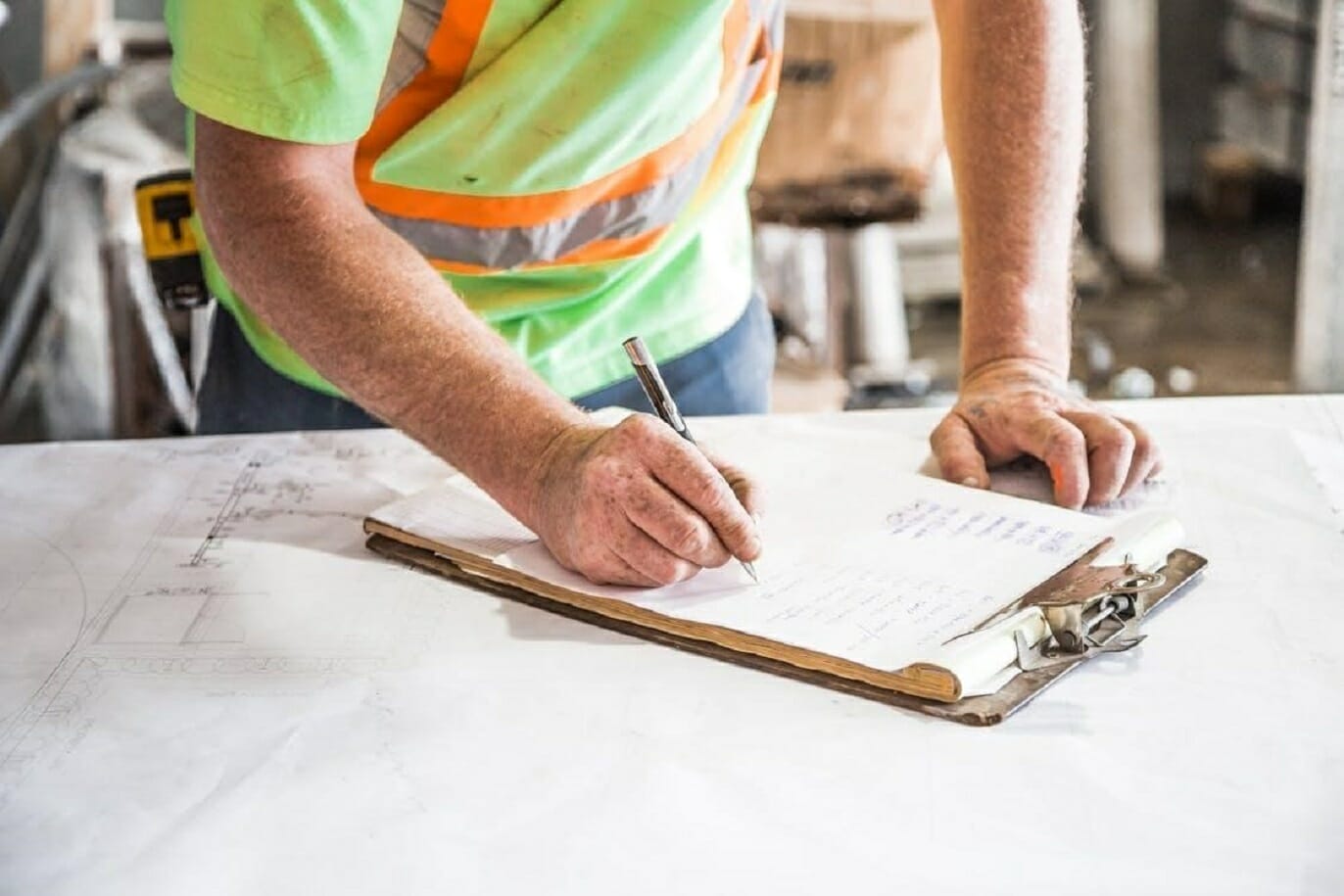Are you preparing for a civil engineering job interview in the Philippines and seeking to ace the challenging questions that may come your way? This guide has compiled a list of 19 difficult civil engineering job interview questions commonly asked during job interviews and their potential answers. By familiarizing yourself with these questions and practicing your responses, you can boost your confidence and increase your chances of impressing potential employers. Let’s delve into these critical civil engineering job interview questions to help you prepare thoroughly for your upcoming interview.
Here are 19 most difficult civil engineering job interview questions
1. Can you provide an example of a challenging civil engineering project you have worked on and how you overcame obstacles?
In a civil engineering job interview, you may be asked to share an example of a challenging project you have worked on and how you overcame obstacles.
Sample Answer to this Civil Engineering Job Interview Question:
“One such project I faced involved designing a bridge over a river with complex geological conditions. The initial soil investigation revealed unstable ground conditions, requiring extensive foundation design modifications. This unexpected challenge threatened project timelines and budgets, putting pressure on the team to find a solution quickly.”
“To overcome this obstacle, we collaborated with geotechnical experts to conduct further investigations and analyze potential solutions. By redesigning the foundation using deep soil mixing techniques and implementing additional stabilization measures, we were able to address the unstable soil conditions effectively. Clear communication among team members, proactive problem-solving, and close coordination with stakeholders was key in successfully navigating this challenging civil engineering project.”

2. How do you stay updated on the latest industry trends and technologies in civil engineering?
In a civil engineering job interview, candidates are often asked how they stay updated on the latest industry trends and technologies. This question assesses the candidate’s commitment to continuous learning and professional development. Employers want to know if the candidate is proactive in keeping up with advancements in the field and if they know the latest technologies that could impact their work.
Sample Answer to this Civil Engineering Job Interview Question:
A simple answer to this civil engineering job interview question could be: “I stay updated on the latest industry trends and technologies by regularly reading industry publications, attending relevant conferences and seminars, and participating in online webinars and courses. Additionally, I network with other professionals to exchange knowledge and stay informed about emerging technologies and best practices.” This response demonstrates the candidate’s proactive approach to staying current in civil engineering.
3. Describe a time when you had to work with a difficult team member or client on a project. How did you handle the situation?
Employers often ask civil engineering job interview questions about your ability to work effectively with difficult team members or clients. They want to understand how you handle challenging situations and conflicts professionally. This question assesses your communication skills, problem-solving abilities, and emotional intelligence in dealing with interpersonal challenges within a project team or client relationship.
Sample Answer to this Civil Engineering Job Interview Question:
During a recent project, I encountered a difficult team member who resisted new ideas and frequently disrupted our team meetings with negative comments. To address this issue, I first approached the team member privately to understand their perspective and concerns. I actively listened to their feedback, acknowledged their feelings, and tried to find common ground to work together more effectively. By demonstrating empathy and showing a willingness to collaborate, I built trust and gradually improved our working relationship. I also communicated openly and transparently with the rest of the team to maintain a positive and productive project environment despite our challenges. This experience taught me the importance of patience, active listening, and conflict resolution skills in overcoming obstacles within a team dynamic.
4. In your opinion, what is the most critical issue facing the civil engineering industry today, and how would you address it?
In civil engineering job interviews, candidates may often be asked about the most critical issue facing the industry today and how they would address it. This question aims to assess the candidate’s awareness of current challenges in the field and their problem-solving skills. It also tests their ability to think critically about complex issues and propose potential solutions, which are essential qualities for professionals in the civil engineering industry.
Sample Answer to this Civil Engineering Job Interview Question:
One critical issue facing the civil engineering industry today is the aging infrastructure in many countries. As existing infrastructure continues to deteriorate due to factors like natural wear and tear, increasing population demands, and climate change impacts, civil engineers are tasked with the challenge of maintaining and upgrading these structures to ensure public safety and well-being. To address this issue, civil engineers can focus on implementing innovative technologies such as advanced materials, smart sensors for monitoring structural health, and sustainable construction practices to enhance the longevity and resilience of infrastructure systems. Additionally, collaboration with stakeholders, policymakers, and the community is crucial to secure funding and support for infrastructure projects that address these pressing needs. By adopting a proactive and holistic approach to infrastructure management, civil engineers can effectively tackle the challenges posed by aging infrastructure and contribute to sustainable development for future generations.
5. Can you walk me through your problem-solving process when faced with a complex engineering problem?
The problem-solving process typically involves breaking down the issue into smaller components to fully understand the question at hand. These problem-solving strategies can be particularly valuable when preparing for civil engineering job interview questions that require candidates to demonstrate their analytical thinking, technical expertise, and ability to address complex challenges effectively in the field.
Sample Answer to this Civil Engineering Job Interview Question:
When faced with a complex engineering problem, my problem-solving process involves breaking down the issue into smaller components, conducting thorough research to understand the problem in-depth, brainstorming potential solutions, evaluating the feasibility and impact of each solution, and collaborating with team members to gather diverse perspectives and insights. I prioritize clear communication, data-driven decision-making, and a systematic approach to problem-solving to ensure effective and efficient resolution of the issue. Additionally, I always remain open to feedback, adaptability, and continuous learning throughout the problem-solving process to optimize outcomes and drive innovation in engineering solutions.
When tackling complex engineering problems, I follow a structured problem-solving approach that begins with a detailed issue analysis. I then gather relevant data, research existing solutions, and engage in brainstorming sessions to generate creative ideas. Next, I assess each solution’s feasibility and potential impact through simulation or prototyping. Collaboration with team members is crucial to leverage diverse expertise and perspectives, leading to well-rounded and effective solutions. I can navigate through challenges and drive successful outcomes in my civil engineering role by maintaining clear communication, staying adaptable, and embracing a continuous learning mindset.

6. How do you prioritize and manage multiple projects with tight deadlines?
In a civil engineering job interview, you may be asked how you prioritize and manage multiple projects with tight deadlines. This question assesses your organizational skills, time management abilities, and capacity to handle pressure in a fast-paced work environment. Employers want to understand your approach to balancing multiple tasks effectively and ensuring that all projects are completed on time and to a high standard.
Sample Answer to this Civil Engineering Job Interview Question:
In managing multiple projects with tight deadlines, I first prioritize tasks based on their urgency and importance. I create a detailed project plan outlining key milestones, deadlines, and resources required for each project. I regularly communicate with project stakeholders to provide updates on progress and address any issues that may arise. Additionally, I am proactive in identifying potential risks and developing contingency plans to mitigate them, ensuring that projects stay on track. I can successfully manage multiple projects and meet deadlines in a demanding work environment by maintaining a clear focus on priorities, effective communication, and strategic planning.
7. What is your experience with project budgeting and cost management in civil engineering projects?
When discussing project budgeting and cost management in civil engineering projects, interviewers are likely seeking to gauge a candidate’s knowledge and expertise in financial planning and control within the context of civil engineering projects. This question assesses a candidate’s ability to effectively estimate project costs, allocate resources efficiently, monitor expenses, and ensure projects are completed within budget constraints. It also aims to evaluate the candidate’s understanding of the financial implications of various engineering decisions, risk assessment, and contingency planning in civil engineering projects.
Sample Answer to this Civil Engineering Job Interview Question:
In my experience with project budgeting and cost management in civil engineering projects, I have demonstrated a strong ability to develop detailed cost estimates by thoroughly analyzing project requirements, materials, labor, and equipment costs. I have successfully implemented cost-tracking systems to monitor project expenditures, identify cost variances, and implement corrective actions to keep projects on budget. Additionally, I have utilized my expertise to conduct value engineering exercises to optimize project costs without compromising quality or safety standards. My proactive approach to cost management has enabled me to effectively manage project finances, mitigate risks, and deliver projects within budget and schedule constraints.
8. How do you ensure that your engineering designs are innovative and practical for implementation?
Civil engineering job interview questions often ask how one ensures that engineering designs are innovative and practical for implementation. This question assesses the candidate’s ability to balance creativity and feasibility in their designs, which are crucial to successful engineering projects. Employers want to know how candidates approach the design process to ensure their solutions are novel, cutting-edge, realistic, and achievable within the project’s constraints.
Sample Answer to this Civil Engineering Job Interview Question:
In response to this question, a candidate could explain that they strive to stay updated on the latest technological advancements and industry best practices to foster design innovation. They could mention their practice of conducting thorough research and analysis to understand the project requirements, constraints, and stakeholders’ needs. By collaborating closely with multidisciplinary teams and seeking feedback at various stages of the design process, the candidate ensures that their innovative ideas are grounded in practicality and can be effectively implemented to deliver successful outcomes in civil engineering projects.
9. Can you describe a time when you had to make a tough decision that significantly impacted a project’s outcome?
In civil engineering job interviews, candidates are often asked to share experiences where they had to make tough decisions that significantly impacted a project’s outcome. This question assesses the candidate’s problem-solving skills, decision-making process, and ability to handle challenges effectively in the workplace. Employers are interested in understanding how candidates approach difficult situations, and the thought process behind their decision-making.
Sample Answer to this Civil Engineering Job Interview Question:
During a previous civil engineering project, I encountered a situation where we were faced with a critical design flaw that had the potential to jeopardize the entire project timeline and budget. As the project manager, I had to make a tough decision on whether to proceed with the flawed design and risk compromising the project’s quality or to halt the construction to address the issue, which would lead to delays and additional costs. After carefully evaluating the options and consulting with the team, I prioritized quality and safety by halting the construction to rectify the design flaw. This decision significantly impacted the project’s outcome as it ensured that the final deliverable met all safety standards and requirements despite the temporary setbacks in schedule and budget.
10. What are the key differences between reinforced concrete and prestressed concrete?
In civil engineering job interview questions, candidates may be asked to explain the key differences between reinforced concrete and prestressed concrete. Reinforced concrete is a common construction material with embedded steel reinforcement bars to enhance strength and durability. On the other hand, prestressed concrete is a specialized type of concrete where internal stresses are intentionally induced to improve its performance under various loads.
Sample Answer to this Civil Engineering Job Interview Question:
A sample answer to this question could be that reinforced concrete combines concrete and steel reinforcement to resist tensile forces, making it suitable for various structural applications. In contrast, prestressed concrete is pre-compressed with high-strength steel tendons before applying loads, which helps to counteract tensile stresses more efficiently. The main advantage of prestressed concrete is its ability to achieve longer spans and thinner sections than reinforced concrete, making it ideal for bridges, high-rise buildings, and other structures where minimizing deflections and cracking is crucial in civil engineering projects.
11. How do you determine the appropriate foundation type for different soil conditions?
Determining the appropriate foundation type for different soil conditions is crucial for civil engineering projects. This question is often asked in civil engineering job interview questions to assess the candidate’s understanding of soil mechanics and foundation design principles. Soil conditions vary greatly from site to site, and the type of foundation selected must be suitable for supporting the intended structure based on factors such as soil-bearing capacity, soil composition, and groundwater levels. Engineers must carefully analyze the soil properties and environmental factors to ensure the foundation can safely distribute the structural loads and prevent settlement or failure.
Sample Answer to this Civil Engineering Job Interview Question:
In response to this question, a candidate might explain that shallow foundations such as spread footings or raft foundations may be suitable for cohesive soils with good bearing capacity. In contrast, deep foundations like driven piles or drilled shafts may be necessary for loose or weak soils to reach more competent soil layers. The candidate could also mention the importance of conducting soil tests, such as standard or cone penetration tests, to gather data on soil properties and inform the foundation design process. The candidate can showcase their expertise in civil engineering principles during the job interview by demonstrating a comprehensive understanding of how soil conditions influence foundation selection.

12. Describe a project where you faced a major obstacle. How did you overcome it?
In a civil engineering job interview, you may encounter questions about challenges faced in past projects and how you overcame them. One common question could be, “Describe a project where you faced a major obstacle. How did you overcome it?” Employers ask this question to gauge your problem-solving skills, adaptability, and resilience in overcoming challenges in the workplace.
Sample Answer to this Civil Engineering Job Interview Question:
During a recent bridge construction project, we encountered a major obstacle when unexpected soil conditions were uncovered during excavation, significantly impacting the project timeline and budget. To overcome this obstacle, I immediately consulted with geotechnical experts and conducted a thorough soil analysis to understand the extent of the issue. By collaborating with the project team and stakeholders, we developed a revised construction plan incorporating additional support structures and soil stabilization techniques to mitigate the impact of the challenging soil conditions. Through effective communication, strategic planning, and proactive problem-solving, we successfully navigated the obstacle and completed the project within the revised timeline and budget constraints.
This experience taught me the importance of adaptability and collaboration in the face of unexpected challenges in civil engineering projects. By leveraging expertise, communication skills, and a proactive approach to problem-solving, I led the project team toward a successful outcome despite the initial setback. This example demonstrates my ability to think critically, make informed decisions under pressure, and effectively manage project constraints, qualities that I believe are essential for excelling in a civil engineering role.
14. Can you discuss a recent Philippines civil engineering project that inspired you?
In a civil engineering job interview, candidates may be asked about recent projects that have inspired them, particularly in the Philippines. This question aims to gauge the candidate’s interest in the field and their awareness of innovative projects that have positively impacted society. By discussing a recent civil engineering project in the Philippines that has inspired them, candidates can showcase their knowledge and passion for the industry.
Candidates preparing for civil engineering job interviews should be familiar with such impactful projects and be able to articulate how they have inspired them. Discussing projects like the Metro Manila Skyway Stage 3 demonstrates a candidate’s understanding of the importance of infrastructure development and their ability to overcome complex engineering challenges to benefit society.
Sample Answer to this Civil Engineering Job Interview Question:
One recent civil engineering project in the Philippines that has inspired many is the Metro Manila Skyway Stage 3. This elevated expressway spans 18.83 kilometers and connects the northern and southern parts of Metro Manila, significantly reducing travel time and easing traffic congestion in the bustling capital city. The project involved complex engineering challenges, such as constructing viaducts and interchanges above existing roads and buildings, showcasing innovative solutions and advanced construction techniques. The successful completion of the Metro Manila Skyway Stage 3 has improved transportation infrastructure and enhanced connectivity and accessibility for residents and commuters in the metropolitan area.
15. How do you stay updated with the latest construction materials and techniques advancements?
Staying updated with the latest advancements in construction materials and techniques is crucial for civil engineering professionals, especially when preparing for civil engineering job interview questions. Employers often seek candidates who are knowledgeable about new technologies and trends in the industry. Being well-informed about the latest developments can demonstrate a candidate’s commitment to continuous learning and improvement in their field.
Sample Answer to this Civil Engineering Job Interview Question:
I use various resources such as industry publications, online forums, webinars, and conferences to stay updated with the latest advancements in construction materials and techniques. Subscribing to newsletters from reputable organizations and following industry experts on social media platforms also helps me stay informed about emerging trends. Additionally, networking with peers in the field and engaging in discussions about innovative construction methods can provide valuable insights that are beneficial in a civil engineering job interview. Keeping abreast of the latest advancements enhances my knowledge and boosts my confidence when discussing relevant topics during interviews.
16. Give an example of a successful collaboration you had with a multidisciplinary team.
In a civil engineering job interview, you may be asked about a successful collaboration with a multidisciplinary team. This question assesses your ability to work effectively with professionals from different backgrounds, leverage diverse expertise, and achieve common goals in a team setting. Employers are interested in understanding how you communicate, problem-solve, and contribute to a collaborative work environment, essential skills in civil engineering.
Sample Answer to this Civil Engineering Job Interview Question:
During a previous project, I had the opportunity to collaborate with a multidisciplinary team comprising civil engineers, environmental scientists, and urban planners. We aimed to design a sustainable infrastructure project that integrated green technologies and minimized environmental impact. Through open communication and mutual respect’s expertise, we were able to brainstorm innovative solutions, address complex challenges, and deliver a successful project that exceeded client expectations. This collaborative experience enhanced the quality of our work and fostered a dynamic and inclusive work culture within the team.

17. How do you ensure effective communication with stakeholders throughout a project?
Effective communication with stakeholders throughout a project is crucial for its success. This is a common topic often explored in civil engineering job interview questions. Interviewers want to assess the candidate’s ability to engage with stakeholders, provide updates, address concerns, and ensure that everyone involved is on the same page. Interviewers can gauge the candidate’s interpersonal skills, problem-solving abilities, and overall project management capabilities by asking about communication strategies with stakeholders.
Sample Answer to this Civil Engineering Job Interview Question:
To ensure effective communication with stakeholders throughout a project, I would establish clear lines of communication from the beginning. This would include regular project status updates, hosting meetings to discuss progress and address any issues, and being responsive to stakeholder feedback. I believe in being transparent and proactive in my communication approach, as this helps build trust and maintain positive relationships with stakeholders. Additionally, I would tailor my communication style to suit different stakeholders’ needs and preferences, whether through email updates, phone calls, or in-person meetings. I can ensure that stakeholders are informed and engaged throughout the project lifecycle by fostering open and consistent communication channels.
18. What motivates you to pursue a career in civil engineering?
You may be asked about your motivations for pursuing a career in a civil engineering job interview. This question is designed to understand your passion for civil engineering and what drives you to excel. Employers want to assess if you have a genuine interest in the industry and are committed to making a positive impact through your work. By articulating your motivations clearly, you can demonstrate your enthusiasm for the role and showcase your dedication to civil engineering.
Sample Answer to this Civil Engineering Job Interview Question:
I decided to pursue a career in civil engineering because I have always been fascinated by designing and constructing structures that have a lasting impact on society. The opportunity to work on projects that improve infrastructure, enhance communities, and promote sustainability motivates me daily. I am passionate about finding innovative solutions to complex problems and enjoy the challenge of balancing technical expertise with creative design. With a strong commitment to excellence and a desire to contribute to advancing civil engineering practices, I am excited about the opportunity to make a meaningful difference in this field.
19. How will you enhance your skills and expertise in the next five years?
In a civil engineering job interview, you may be asked about your plans to enhance your skills and expertise over the next five years. This question aims to assess your commitment to professional growth and development and your strategic approach to advancing your career in civil engineering. Employers want to know if you have a clear vision for improving your skills and staying up-to-date with industry trends to remain competitive.
Sample Answer to this Civil Engineering Job Interview Question:
Sample answer: Over the next five years, I plan to enhance my skills and expertise in civil engineering through continued education, hands-on experience, and involvement in professional organizations. I aim to pursue advanced certifications in specialized areas such as structural engineering and sustainable design to broaden my knowledge base. Additionally, I plan to seek mentorship opportunities with senior engineers to gain valuable insights and guidance. I am confident I will be well-equipped to tackle complex projects and contribute effectively to civil engineering by staying current with the latest industry developments and technologies.
Concluding Thoughts: Most Difficult Civil Engineering Job Interview Questions
Preparing for civil engineering job interviews in the Philippines requires technical knowledge, the ability to think critically, and the ability to communicate effectively. Aspiring civil engineers can demonstrate their readiness and commitment to excel in the industry by familiarizing themselves with these nine challenging interview questions and crafting thoughtful responses. Remember, practice makes perfect, so hone your skills and approach each interview with confidence and determination.














